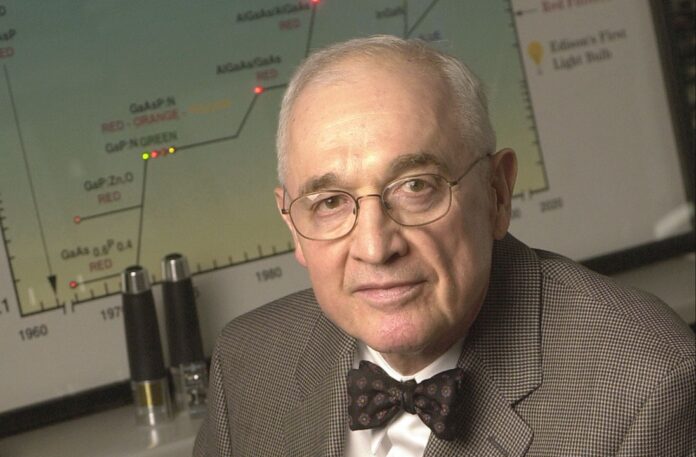The latest Nobel Prize in Physics has brought up a longstanding complaint from a technology pioneer.
As most of us in the lighting world know, the 2014 Nobel Prize in Physics was awarded to two Japanese researchers and a Japanese-born U.S. citizen for the invention of blue LEDs “which has enabled bright and energy-saving white light sources” to be used globally. Not surprisingly, 85-year-old retired engineering professor, Nick Holonyak, who invented the red LED light in 1962 at General Electric, said the award was “insulting.” And I, Dr. Bulb, have to agree with him!
In combination with red and green LEDs, blue LEDs enable the creation of white light. According to the American Institute of Physics, the blue LED is a fundamental invention that led to the creation of white light, which changed how we light every corner of the world. But the recent Nobel Prize winners built on the achievements of scientists who invented the red and green LEDs, and without the work of these scientists, the latest achievement would not have been possible.
Royal Swedish Academy of Sciences briefly noted Holonyak’s work in the scientific background issued with the prize, but failed to mention that he had not been awarded a Nobel Prize for his contribution. Holonyak said he is not discounting the work of the three scientists, but believes that his previous work on the red LED should not be separated from their recent achievement with the blue LED.
Another pioneering LED scientist has been snubbed in the past. Russian scientist and inventor Oleg Losev created the first LED in 1942, two decades before Holonyak’s invention and before any practical use could be made of it.
Of course, the Nobel committee limits its potential co-winners at 3 to prevent having to give an award to every scientist whose work led to a particular discovery. If they did not have this cap, the committee would have to award hundreds of winners each year. It’s still understandable to feel insulted when you’ve invested so much research into a discovery and go unrecognized by such a prestigious award.
If you were in Holonyak’s shoes, how would you feel?



